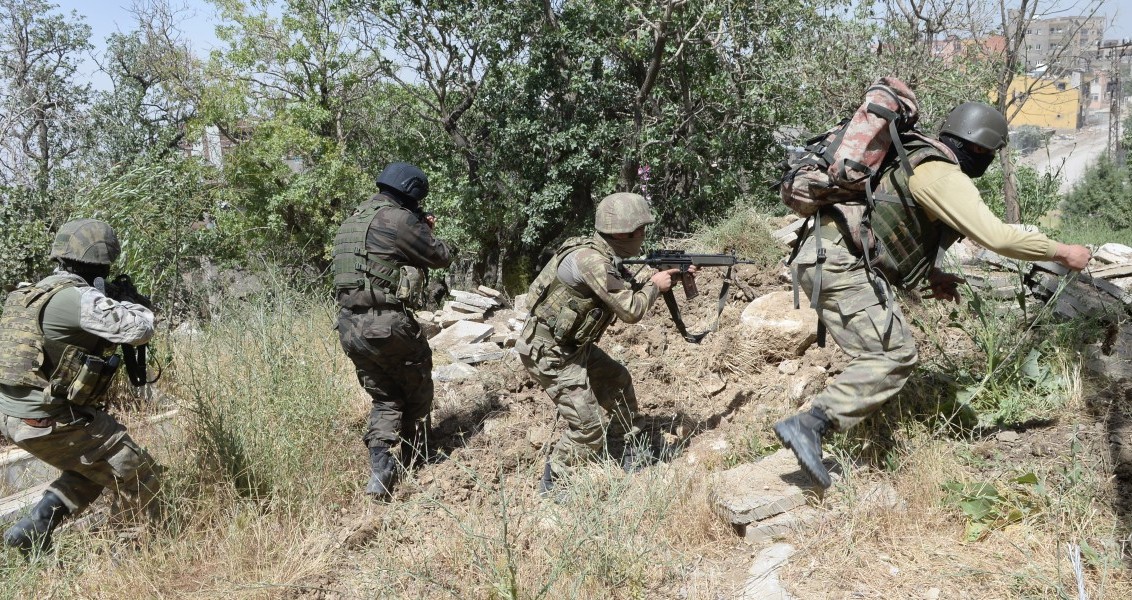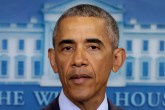Terrorism is a global problem, but Turkey has been targeted more times than any other country in Europe over the past months. Whether DAESH or the PKK, perpetrators have murdered dozens of innocent people in cold blood.
In the first days of Ramadan, the Islamic holy month, the PKK perpetrated car bomb attacks in Istanbul and Mardin to claim 18 lives, including civilians and a six-month-pregnant police officer. Although the organization lost over 7,000 members as a result of their misguided push for autonomy, they are committed to terrorizing metropolitan areas. Having secured the support of Washington and Moscow, the PKK desperately wants to stay relevant in Turkey.
The PKK has been gaining ground in northern Syria thanks to U.S. weapons, training and consultants. To keep the war in northern Syria going, they have been recruiting young people in southeastern Turkey. At the same time, they would like to pay lip service to a return to disarmament talks to appease the U.S. government and repair their ties with Turkey’s Kurds, many of whom are sick of terrorism and destruction.
Last week, Prime Minister Binali Yıldırım told reporters that the PKK leadership had been reaching out to the authorities to return to dialogue. Meanwhile, many media personalities have been urging the government to return to disarmament talks with the PKK, citing the high number of casualties. They complain about the Justice and Development Party’s (AK Party) “commitment to the military option” and argue it was wrong to lift the immunities of certain parliamentarians.
To be clear, the counter-terror campaign cannot be under the exclusive control of the security forces. The political leadership must stay in touch with affected communities, take necessary steps to rebuild violence-struck areas and promote economic growth in southeastern Turkey. At the same time, Turkey must not deprive Kurdish nationalists of their political rights because politics is the ultimate weapon against violence.
Still, calling for renewed dialogue between Turkey and the PKK is harmful and untimely. It is harmful because the prospect of talks could weaken the middle ground necessary to conduct successful security operations. And it is untimely because neither the PKK nor their international sponsors want the violence in Turkey to end before the Syrian civil war is over.
Last year, the PKK leadership, overjoyed with their political wing’s election victory, had unilaterally ended a two-year cease-fire. Today, they desperately want a return to disarmament talks in order to regain their strength in southeastern Turkey. At the same time, they would like to use a potential cease-fire in Turkey to strengthen their hand in Syria and Iraq. To be clear, nobody would expect them to seriously think about disarmament. If only they can tell Western politicians and the opposition in Turkey that they are trying to talk, the AK Party government will find itself against the ropes.
Political commentators who like to complain that the AK Party does not want peace are missing three crucial things:
- The AK Party twice attempted to engage in disarmament talks with the PKK in recent years. Both times, the PKK unilaterally ended the talks and expected the AK Party to pick up the check. Today, the PKK and its political wing have little credibility left.
- There can be no unconditional return to disarmament talks. If Ankara starts negotiating with the PKK before the group agrees to disarm, the resulting failure would only inflict irreparable harm to the Kurdish community’s ties with Turkey.
- Finally, Turkey will continue to safeguard the rights of Kurds, protect them and promote their welfare no matter what the PKK does. There can be no ifs or buts when it comes to this crucial issue. But the government cannot survive unless a concrete commitment to disarmament remains a precondition of renewed dialogue.
[Daily Sabah, June 13, 2016]
In this article
- Opinion
- Security
- 2016
- Cease-fire | Ceasefire
- Civil War
- DAESH
- Daily Sabah
- Europe
- Iraq
- Islam
- Islamic
- Kurdish Community
- Kurdish Nationalism
- Kurdistan Workers' Party Terrorist Organization (PKK)
- Middle East
- Opposition
- PKK - YPG - SDF - PYD - YPJ - SDG - HBDH - HPG - KCK - PJAK - TAK - YBŞ
- Prime Minister
- Russia
- Syria
- Syrian Civil War
- Syrian Conflict
- Syrian Crisis
- Terror
- Terrorism
- Türkiye's Justice and Development Party | AK Party (AK Parti)
- United States (US)
- Western World



